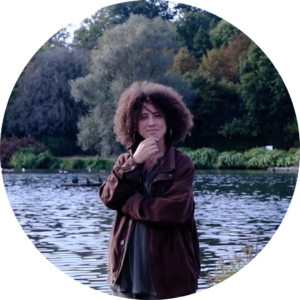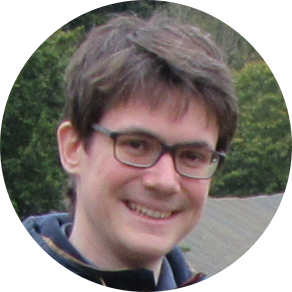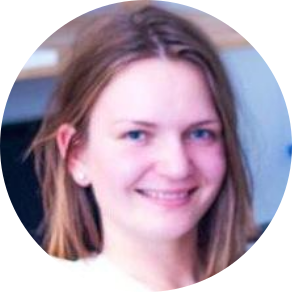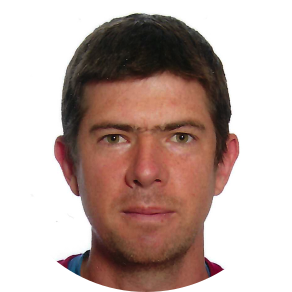Godefroid de Callataÿ
Professor of Arabic and Islamic Studies at the Oriental Institute of the University of Louvain
Godefroid de Callataÿ has specialised in the history of Arabic sciences and philosophy, and the role played by Islam in the transmission of Hellenistic knowledge to the Latin West during the Middle Ages. Amongst other subjects, he has published extensively on the Rasā’il Ikhwān al-Ṣafā’, and has edited and translated various epistles as part of the ‘Epistles of the Brethren of Purity’ series at Oxford University Press in association with the Institute of Ismaili Studies. From 2012 to 2017, he has directed ‘Speculum Arabicum’, a project on comparative encyclopaedism in the Middle Ages designed to explore medieval encyclopaedism in the East and the West in order to provide unbiased information and quantifiable benchmarks that can help us better understand the extent of what Europe owes to the scholars of Islam. Since October 2017, he is the Principal Investigator of PhilAnd, an Advanced Grant ERC project to be conducted for five years at the University of Louvain in partnership with the Warburg Institute of the University of London. With Sébastien Moureau, he also contributes more specifically to sub-project 5, consisting in the critical edition, the English translation and the commentary of Maslama b. Qāsim al-Qurṭubī’s Rutbat al-ḥakīm. Among his publications are the following monographs: Annus Platonicus. A Study of World Cycles in Greek, Latin and Arabic Sources (1996); Ikhwān al-Ṣafā’. A Brotherhood of Idealists on the Fringe of Orthodox Islam (2005) and The Epistles of the Brethren of Purity, On Magic. 1. An Arabic Critical Edition and English Translation of Epistle 52A (2011, with Bruno Halflants). Complete CV and list of publication available at G. de Callataÿ CV and PublicationsCharles Burnett
Professor of the History of Arabic/Islamic Influences in Europe at the Warburg Institute, University of London
Charles Burnett is Professor of the History of Arabic/Islamic Influences in Europe at the Warburg Institute, University of London. His research centres on the transmission of texts, techniques and artefacts from the Arab world to the West, especially in the Middle Ages. He has documented this transmission by editing and translating into English several texts that were translated from Arabic into Latin, and also by describing the historical and cultural context of these translations. Among his books are The Introduction of Arabic Learning into England (1997), Arabic into Latin in the Middle Ages: The Translators and their Intellectual and Social Context (2009) and Numerals and Arithmetic in the Middle Ages (2010), and editions are Hermann of Carinthia’s De Essentiis (1982), The Liber Aristotilis of Hugo of Santalla (with David Pingree, 1997), Scientific Weather Forecasting in the Middle Ages: The Writings of Al-Kindi (with Gerrit Bos, 2000), and Abū Ma‘shar’s On Historical Astrology (with Keiji Yamamoto, 2000).
Sébastien Moureau
Research Associate of the F.R.S.-FNRS attached to the University of Louvain
His main field of research is the history of sciences in the Arab-Muslim world and their transfer to the Latin West in the Middle Ages. He is especially interested in the so-called “occult sciences”, with a focus on alchemy. He got his PhD from the University of Louvain, with a thesis on the Pseudo-Avicennian De anima, the translation and compilation of three Arabic alchemical treatises misattributed to Avicenna. He has been a post-doc fellow at the Atelier Vincent de Beauvais, at the University of Louvain and at the Warburg Institute of the University of London. With Bruno Halflants and Godefroid de Callataÿ he is currently contributing to the critical edition and the annotated English translation of the long version of the Epistle of Magic (52b), attributed to the Ikhwān al- Ṣafā’, to be published by Oxford University Press and the Institute of Ismaili Studies in the “Epistles of the Brethren of Purity” series. As part of PhilAnd, his main contribution is to sub-project 5, consisting in the critical edition, the English translation and the commentary of Maslama b. Qāsim al-Qurṭubī’s Rutbat al-ḥakīm. Complete CV and list of publication available at https://uclouvain.be/fr/repertoires/sebastien.moureau.
Liana Saif
Postdoctoral researcher in the ERC PhilAnd project
Liana’s academic journey so far reflects her interest in Islamic esoteric thought and the occult sciences, in addition to the intercultural exchange of occult and esoteric ideas between the Islamicate world and Europe in the medieval and early modern periods. Her approach to the occult sciences privileges the text as a source of our evaluation of their place in the intellectual and scientific activity in Islamicate societies. She focuses on how their practitioners and authors created theories that negotiated epistemological shifts which inform and are informed by political, religious, scientific disciplinary frameworks and institutions. Her first monograph, The Arabic Influences on Early Modern Occult Philosophy, was published by Palgrave Macmillan in 2015. In 2014, she received the British Academy postdoctoral fellowship at the Institute of Oriental Studies (The University of Oxford) to undertake a project entitled ‘On the Margins of Legitimacy: Magic in Medieval Islam’. She engaged in a comprehensive analysis of magical practices in medieval Islam (from pseudo-Aristotelian Hermetica to Ahmad al-Būnī ), their cosmological frameworks, and the epistemological shifts that transformed them. As part of the project, she is currently preparing a critical translation from Arabic into English of the Ghāyat al-ḥakīm by Maslama b. Qāsim al-Qurṭubī. In 2016, she joined the University of Louvain-based ‘Speculum Arabicum project: Objectifying the contribution of the Arab-Muslim world to the history of sciences and ideas: the sources and resources of medieval encyclopaedism’. She conducted research on Epistle 52b (the long version of the last epistle – ‘On Magic’) of the Rasā’il Ikhwān al-Ṣafā’ in collaboration with Prof. Godefroid de Callataÿ, Dr. Sébastien Moureau and Mr. Bruno Haflants. She will now continue to work with UCL in collaboration with the Warburg Institute, as a postdoctoral researcher in the ERC PhilAnd project. Her objective is to provide an in-depth analysis of the understudied Kitāb al-Baḥth attributed to Jābir ibn Ḥayyān, and to gauge its influence in al-Andalus. She will produce a critical edition and translation into English of the text.
Janne Mattila
Postdoctoral researcher in the ERC PhilAnd project
Janne Mattila’s primary area of research is history of philosophy and general intellectual history of the first Islamic centuries. He received his doctoral degree at the University of Helsinki in the discipline of Arabic and Islamic studies. His doctoral thesis was an investigation into the idea of happiness in 10th-century Aristotelian philosophy and Ismaili theology. As a post-doctoral researcher, he has worked at the universities of Jyväskylä and Helsinki. His research interests have focused in particular on ethics and philosophical interpretations of religion in both the Aristotelian and the more esoterically oriented intellectual traditions. The authors he has studied include the Brethren of Purity (Ikhwān al-Ṣafāʼ), Abū Bakr al-Rāzī, al-Fārābī, and Avicenna. In addition to scientific publications, he has translated the animal fable of the Brethren of Purity into Finnish. Janne Mattila’s research in the PhilAnd project focuses on the Epistles and the two related works (Al-Risāla al-jāmiʻa and Risālat jāmiʻat al-jāmiʻa) of the Brethren of Purity, as well as their impact on the genesis of philosophical and esoteric thought in al-Andalus. The main research problem is the internal dating of the 52 epistles and their two ‘summaries’, with the aim of establishing the chronology of their redaction. Recent research has demonstrated the early introduction of the Epistles into al-Andalus. This part of the project will therefore both further investigate the relations between the Epistles and the early Andalusian philosophical and esoteric authors and employ the Andalusian texts as a means for the relative dating of the Epistles.
Elaine Van Dalen
Postdoctoral researcher in the ERC PhilAnd project
Elaine Van Dalen is a philologist and an intellectual historian of medieval Islam. She works with Arabic, Greek, Syriac, and Hebrew texts to study the history of medieval Islamic science and philosophy. To date, she has worked specifically on Islamic medicine and Graeco-Arabic translation. Her research is inspired by questions of transmission and translation of scientific and philosophical texts and ideas, originating from an underlying interest in the nature of human knowledge. Her interests are interdisciplinary; she has written on conceptual topics such as medieval Islamic paediatrics, but also worked on the linguistic characteristics of the medieval medical commentary, as well as textual problems of authorship attribution and textual criticism. Her academic journey began at Leiden University, Netherlands, where she received bachelors in Hebrew and Aramaic Languages and Cultures (BA 2011), and Arabic Language and Culture (BA 2011). During this time, she spent a semester abroad at the Netherlands-Flemish Institute in Cairo, a city then on the verge of revolution where she would soon go back to complete her master in Middle East Studies at the American University in Cairo (MA 2014). From Cairo she moved to Manchester, UK, to study the Arabic Commentaries on the Hippocratic Aphorisms from a socio-linguistic perspective. There she received her PhD in Classics and Ancient History under supervision of Peter Pormann, in February 2017. After a few months of postdoctoral research at Manchester (mostly on the authorship of Ibn an- Nafīs’medical commentaries), she took up a teaching fellowship at the University of Edinburgh in Islamic History in autumn 2017. Since January 2018, she is a postdoctoral researcher in PhilAnd. Her research focuses on the influence of Ibn Waḥshiyya’s Filāḥa Nabaṭiyya on the development of philosophy in the Islamic and Jewish Neoplatonist milieus of early medieval Andalusia (10th-12th century). She is particularly interested in the adoption of Nabatean bāṭinism in Maslama b. Qāsim al-Qurṭubī’s (d. 964) Ghāyat al-Ḥakīm (Goal of the Wise), but also in the works of the Jewish philosophers Ibn Gabirol (d.1070) and Ibn Ezra (d. c. 1167), and the Islamic mystics in the tradition of the karamāt al-awliyā’.
José Bellver
Postdoctoral researcher in the ERC PhilAnd project
José Bellver’s primary research interest focuses on the intellectual history of Islam, particularly on the fields of Sufism, philosophy and history of science in al-Andalus. He holds BA and PhD degrees on Arabic Studies from the University of Barcelona. His training in Arabic studies together with his previous degrees on Engineering oriented his initial research to the field of history of science in Islam. He devoted his PhD dissertation to the Andalusi mathematician and astronomer Jābir b. Aflaḥ and his criticisms of Ptolemy, about whom he has published extensively. After his PhD degree, Bellver has held research positions at Boston College (funded by the Catalan government), the University of Barcelona and the University of Würzburg/Bavarian Academy of Sciences and Humanities. In the field of Andalusi Sufism, he has devoted research to the sixth/twelfth and seventh/thirteenth centuries, and particularly to Ibn Barrajān and his disciples, about whom he has published in the Journal of the American Oriental Society and Arabica, among others. He is the author of “Ascetics and Sufis” in the forthcoming Routledge Handbook of Islamic Iberia, edited by Maribel Fierro. In 1972, Muḥammad Kamāl Ibrāhīm Jaʿfar called attention to two short works, Risālat al-Iʿtibār and Kitāb Khawāṣṣ al-ḥurūf, which he attributed to Ibn Masarra (d. 319/931). Bellver’s research in the PhilAnd project focuses on Kitāb Khawāṣṣ al-ḥurūf, and its place in the intellectual history of al-Andalus as an early example of the symbolism of letters in the western Islamicate world. The so-called Kitāb al-Ḥurūf, formerly attributed to Sahl al-Tustarī (d. 283/896), is the only one quoted source in Kitāb Khawāṣṣ al-ḥurūf. Bellver will provide translations and commentaries of both Kitāb Khawāṣṣ al-ḥurūf and Pseudo-Sahl’s Kitāb al-Ḥurūf. To illuminate the thought of the author, Bellver will compare Kitāb Khawāṣṣ al-ḥurūf and Risālat al-Iʿtibār in view of their social and intellectual contexts. He will also trace the net of influences received and exerted by this work, which shares common topics with the Ikhwān al-Ṣafāʾ, and with western Sufis and intellectuals from the late fifth/eleventh to the seventh/thirteenth centuries, ranging from Ibn al-Sīd al-Baṭalyawsī (d. 521/1127), Ibn Barrajān (d. 536/1141), Ibn Qasī (d. 546/1151), al-Būnī (d. 622/1225 or 630/1232-3), al-Ḥarrālī (d. 637-8/1239-40), Ibn ʿArabī (d. 638/1240) to the Shūdhiyya. These developments would not be complete if they are not put in parallel with similar flowerings in the Jewish circles of the Iberian Peninsula and the Maghreb.
Michele Petrone
Postdoctoral researcher in the ERC PhilAnd project
Michele discussed his MA dissertation on Avicenna, Ibn ʻArabī and the ideas of time with Carmela Baffioni at the University of Napoli “l’Orientale”. During his PhD studies he worked on the oeuvre of Ǧalāl al-Dīn al-Suyūṭī, analyzing the controversial themes of authorship and plagiarism in non-authorial literature (collections of sayings). The relations between al-Suyūṭī and the people of Takrūr led him to study the presence of this author in West Africa, bringing him to the discovery of the lively textual heritage of West African Sufim, specifically of the Tiǧāniyya. This allowed him to continue studying Sufism from a textual and doctrinal point of view, while in a different context. From this, the passage to the Islam in the Horn of Africa Project, focused on manuscript heritage in the Ethiopia and surrounding countries was a natural prosecution of his work on the Tiǧāniyya. For the PhilAnd project he will resume his work on the terminology of time, focusing on the Filāḥa Nabaṭiyya. He will also study the cosmological and astrological implications of different doctrines of time found in the corpus of Iḫwān al-ṣāfā’ and other esoteric texts diffused in al-Andalus up to the 13th century. These cosmological data will be analyzed through the narrations of heavenly ascension experiences (Jewish and Islamic), starting from a passage in the Filāḥā where there is an allusion to miʻrāǧ. In the final stages of the research he will explore the role magic played in Andalusian literature, concerning the polemic about karāmāt al-awliyā’ (in collaboration with Elaine van Dalen).
Laura Tribuzio
Postdoctoral researcher in the ERC PhilAnd project
Laura specializes in the recovery, transcription, and analysis of Arabic and Persian manuscripts relating to Islamic Sciences and Philosophy. As part of her Ph.D., she examined the transmission of acoustic and musical theories from Greek to Arabic and Persian scientific and medical writings. While her primary focus was the Avicennian tradition, she also worked extensively on galenic pulse diagnosis sources. Laura’s passion for research motivated her to leave her teaching job and comforts in Italy to join PhilAnd. Her attempt will be to shed light on one of the most controversial subjects in music science: Harmony, beginning with the fifth Risāla fī’l-mūsīqā by the Ikhwān al-Ṣafā’. She proposes to study how the Ikhwanian tradition on harmony has influenced al-Andalus scientific literature between the tenth and thirteenth centuries. Furthermore, Laura will also explore the understanding of the Ikwhanian tradition in the Persian scientific literature. As part of PhilAnd, she will begin to critically examine the Mujmal al-Ḥikma, a Farsi re-elaboration of the Rasā’il. Therefore, a wider East-West perspective would help us gain a better understanding of the Ikhwan’s tradition in Europe.

Mariam Shehata
Doctoral researcher in the ERC PhilAnd project
Mariam Shehata’s primary research interest is the development of the Muslim intellectual movement, specifically in Islamic theology, philosophy, and logic. She holds BA and MPhil degrees in Islamic philosophy from the Department of Theology and Philosophy at Al-Azhar University. In 2010, she was awarded the Fulbright Scholarship in Religious Studies and obtained her master’s degree (MAR) in comparative religions from Yale Divinity School, Yale University, USA. Since 2013, she has worked as an assistant lecturer in Islamic Studies at Al-Azhar University before moving to the United Kingdom to pursue her PhD at the School of Oriental and African Studies (SOAS), University of London. In her doctoral thesis, she concentrates on the post-Avicennian tradition with a special interest in the 12th-century Muslim philosopher of Jewish origin, Abū l-Barakāt al-Baghdādī’s reception of Ibn Sīnā’s metaphysics. As part of PhilAnd, her research focuses on the classification of sciences in the work of the Cordoba traditionist jurist Ibn Ḥazm (d. 456/1064) by analysing three of his treatises on the subject: Marātib l-ʿulūm, Tawqīf ʿalā shāriʿ al-najāt, and taqrīb li-ḥadd l-manṭiq). She also examines the potential influence of Ibn Ḥazm’s classification of sciences on the following generations.
Rémy Baranx
IT Expert
Rémy Baranx is an IT expert. After working for almost fifteen years as embedded software engineer for several companies in France and Belgium he joined UCLouvain and PhilAnd to develop a set of tools to collect and link together various types of data useful for the project and to make them easily searchable for scholars.

Lara Núñez Muslera
Assistant researcher in the ERC PhilAnd project
Lara Muslera is a multidisciplinary artist and dedicated teacher. She has published two poetry books, worked in various performing arts projects in Barcelona, founded a company of poets and performers in Israel (Bordel Shira), and worked as a language and performing arts teacher for over 7 years. Currently, she teaches Spanish at the UCLouvain, organizes artistic installations in educational settings (/What is love?), and balances her artistic and academic practices. In ERC PhilAnd, she takes care of the dissemination through the audiovisual project “Conversations with researchers,” consisting of a series of videos on various research topics. Additionally, she handles the project’s organization and administration.









